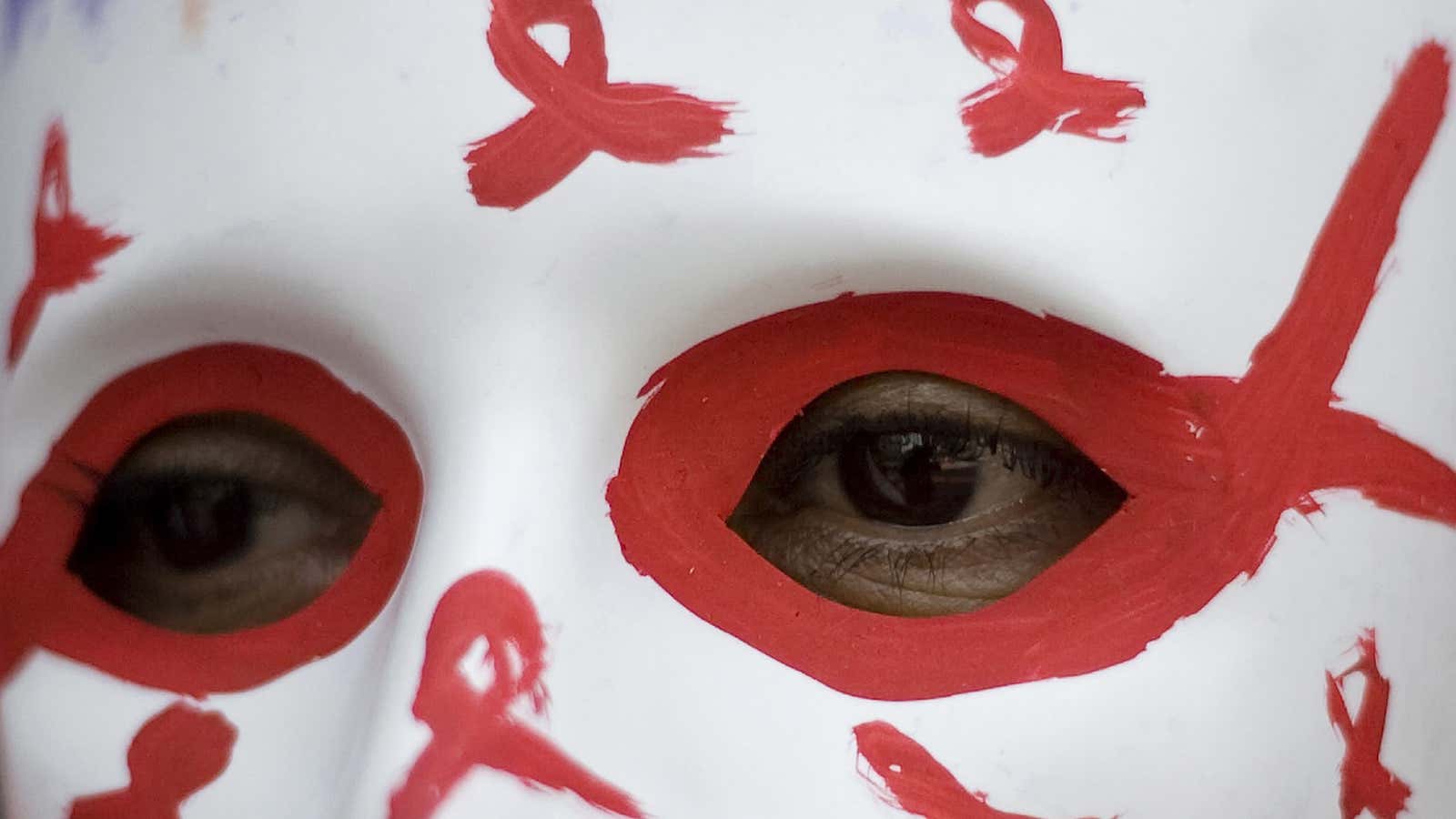The US food and drug administration (FDA) approved the first ever injectable drug for HIV prevention on Dec. 20.
Apretude—whose generic name is cabotegravir extended-release injectable suspension—marks the “first option to prevent HIV that does not involve taking a daily pill,” said Debra Birnkrant, director of the antivirals division at the US Food and Drug Administration (FDA) center for drug evaluation and research. So far, oral PrEP (pre-exposure prophylaxis) medication like Truvada and Descovy, which must be taken daily, have been the only preventive drugs for the autoimmune condition.
In the case of Apretude, first two doses are administered a month apart. After that, it’s one jab every two months, and it “demonstrated superior efficacy to a daily oral PrEP option,” says ViiV Healthcare, an HIV specialist subsidiary of GlaxoSmithKline (GSK), which was granted the approval.
Who can get Apretude?
The injection can be prescribed to adults and adolescents at high risk of contracting HIV who weigh at least 77 pounds (35 kg). Patients can either start their treatment with Apretude or take oral cabotegravir (Vocabria) for four weeks to assess how well they tolerate the drug.
Before each dose, patients must have a confirmed negative HIV test. “Drug-resistant HIV variants have been identified in people with undiagnosed HIV when they use Apretude for HIV PrEeP,” the FDA’s release warned.
Apretude will start shipping to wholesalers and specialty distributors in early 2022, Viiv said. It’ll cost roughly $3,700 per dose, which does not stray far off from the $1,750 monthly cost for the daily pills.
Injectable drug vs daily pills for HIV prevention
For many vulnerable patients, disorders, depression, poverty, and efforts to conceal medication can impact adherence to a regime of pills. Not only do people risk contracting HIV, but the virus may even become resistant (pdf) to medicines used to treat the condition.
The injection will help “high-risk individuals and certain groups where adherence to daily medication has been a major challenge or not a realistic option,” Birnkrant says.
It may come with some additional discomfort, however. While Apretude showed higher efficacy than daily pills in lab trials, side effects also occurred more frequently in participants who received Apretude compared to participants who received Truvada. These included injection site reactions, headache, pyrexia (fever), fatigue, back pain, myalgia and rash. But given its higher efficacy, it may be worth the pain.
Making HIV prevention easier
While the spread of HIV has come down from its peak in the 1980s, as fear, stigma, and ignorance have been fought with education and awareness, the epidemic is not yet over. At the end of 2019, more than 1.1 million people in the US had HIV, and a similar number remain at risk of contracting it, with the covid-19 pandemic making things worse. They may be intravenous drug users, work with blood, or have partners with HIV, for example.
Preventative care is improving. In 2020, PrEP medicine was suggested to 1.2 million people considered at risk of contracting HIV from sex or drug use. According to the US Centers for Disease Control and Prevention, 25% of those prescribed the medicine took it—a notable leap from just 3% in 2015, and experts hope the injectable option will increase PrEP uptake and adherence further.
